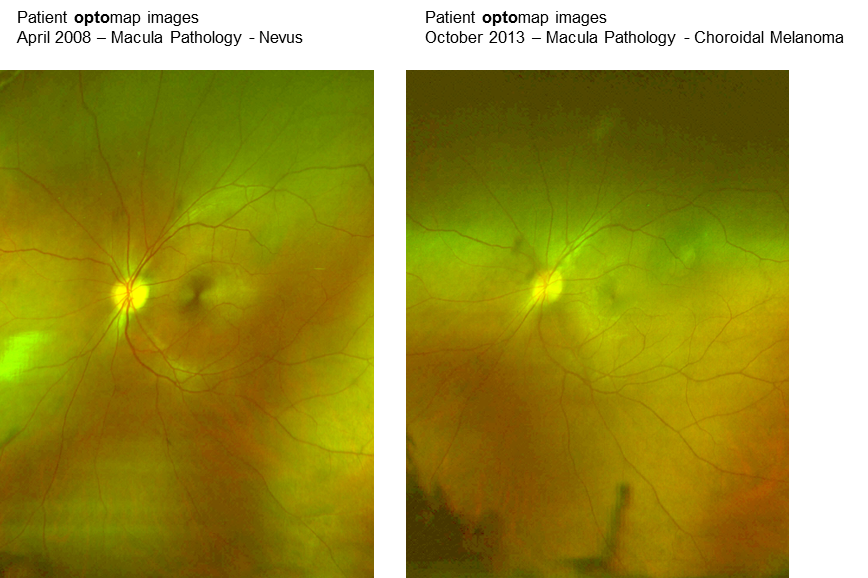Routine optomap® Images Help Detect Chorodial Melanoma
Many patients still think of melanoma as a form of cancer that only affects the skin. However, melanoma can become present in the eye, as one practitioner and optomap® customer knows from personal experience.
Denise Kniefel, OD, has been an optomap® customer since 2004 and began imaging her own retina “as a matter of course.” In 2008, Dr. Kniefel stopped by our booth at a tradeshow to speak with a representative about the new technology we’d recently revealed, which provided better imaging than before. She had her retina image captured at our booth, and the imaging detected a nevus that Dr. Kniefel had not seen previously.
Dr. Kniefel visited her ophthalmologist when she returned home, who performed a fluorescein angiography and an OCT exam. Her practitioner confirmed the nevus and recommended routine monitoring, as a nevus is similar to a freckle on the skin and can become cancerous. Her doctor told her to be watchful of changes in her vision, since this could be a sign that the nevus was changing to cancerous melanoma.

Dr. Kniefel captured images of her retina every six months with optomap® and in 2013, she noticed the nevus appeared different than before. Although she was not experiencing vision loss, she visited her retinal specialist who said the nevus was presenting as a small chorodial melanoma. Dr. Kniefel then went to Massachusetts Eye and Ear Infirmary in December 2013 for proton beam radiation treatment. While her prognosis is unclear because her treatment took place just a few months ago, a positive outcome is expected since optomap® technology helped detect Dr. Kniefel’s cancer in its earliest stages.
Chorodial melanoma affects six out of a million people, and unfortunately most of these cases go undetected until the cancer is very large. Through her personal experience, Dr. Kniefel advises all patients to have an optomap® exam and also encourages it in her own community. She says using the technology to monitor her nevus gave her the ability to receive first-class treatment for her melanoma before a dilation fundus exam could have detected it.
Are you interested in learning more about how bringing optomap® technology to your practice can help you detect conditions like chorodial melanoma earlier than with traditional examination equipment? Contact Optos today. Our representatives are ready to share the many ways our technology can benefit your patients and your practice to enable you to see, detect and diagnose more.